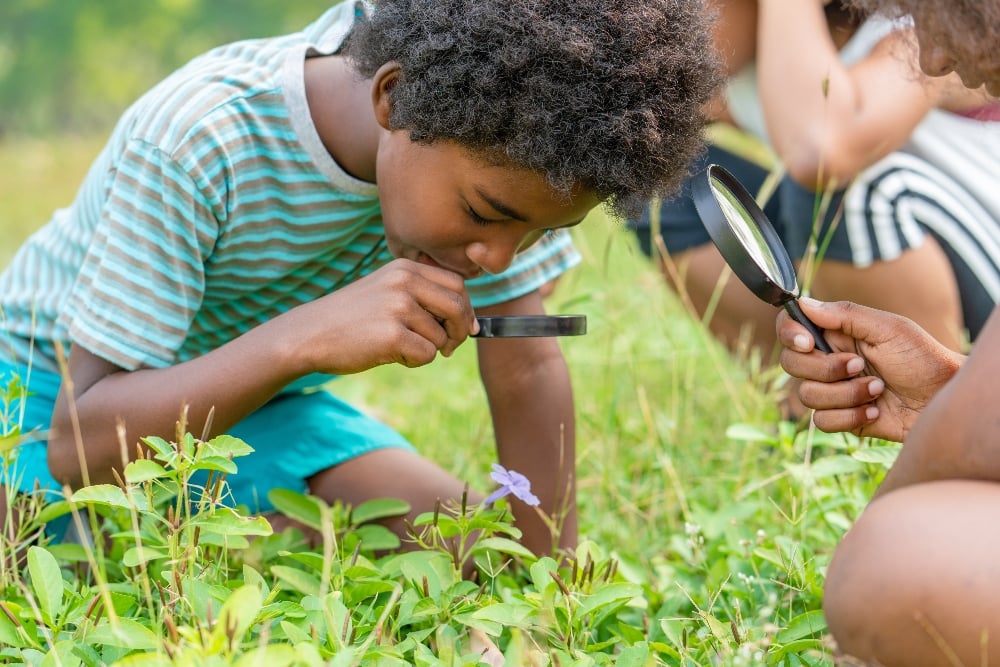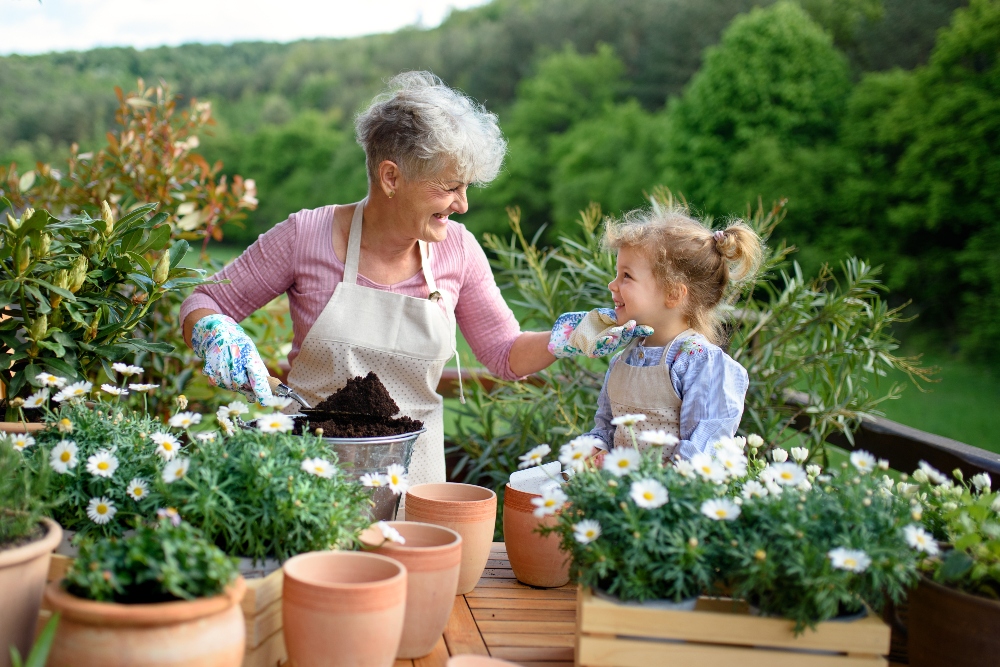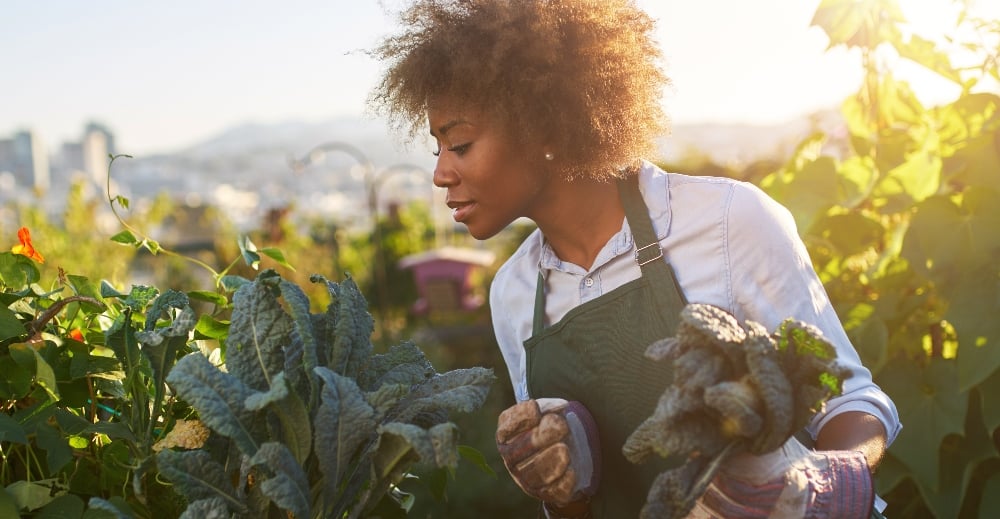Those who eat a plant-based diet appreciate how natural foods keep us healthy and reduce the risk of chronic diseases. However, nature also nurtures us in non-material ways, and offers physical and mental benefits.
The advantages of getting fresh air and spending time in the garden or countryside are often immediately apparent, but a growing area of research aims to quantify these intangible effects.
A team at the Graduate Program in Sustainability Science at the University of Tokyo recently conducted a systematic review of more than 300 papers to investigate the non-material effects of nature on our wellbeing.
How nature benefits communities
Cultural ecosystem services (CESs) are the non-material ways that ecosystems benefit people and communities. Policymakers can use CES research to manage human–nature interactions and improve our quality of life.
The review, published in Science Advances, identified 16 distinct mechanisms or ways that nature affects our wellbeing. Previous studies have identified some of these linkages, but the team identified 10 new mechanisms.
The following are some ways that, according to the researchers, nature nurtures us.
Cognitive: Ecosystems provide opportunities for learning, knowledge, and scientific research. Children develop a sense of wonder for the world around them.
Creative: Nature inspires people to paint, draw, take photos, discover, explore, and generally contemplate things.
Cohesive: The development of meaningful relationships between people via interaction with nature. For example, camping trips and social gatherings in natural settings can reinforce fundamental values about caring for others and the environment and strengthen ties.
Intuitive: Many people experience something deeply spiritual when they interact with nature.
Regenerative: Interaction with nature can improve mental health and reduce stress and anxiety, improving sleep, fatigue, and physical health.
Retrospective: Natural landscapes have emotional and cognitive bonds, providing memories and becoming part of people’s life stories.
However, there were some negative effects, such as annoyance at wildlife noise and damage to property. Additionally, some people feel apprehensive in isolated natural places or when wild animals are present.
Nature’s effects on physical and mental health

Evidence suggests that being exposed to nature has a whole heap of benefits for our physical and mental health, including:
- Improved cardiovascular and respiratory function
- Sunlight and vitamin D exposure
- Faster healing after surgery
- Less anxiety and depression
- Improved mood
- Longer life expectancy
Further, when out in the fresh air, we inhale beneficial natural compounds that support our immune system. We also pick up friendly bacteria by touching the soil and natural elements.
In fact, the hygiene hypothesis suggests that a lack of exposure to microorganisms in the natural environment has a detrimental effect on infants’ immune systems. Simply being too clean can stop us from developing a wide range of gut bacteria that helps reduce inflammation.
Furthermore, beneficial bacteria can influence our mood and mental health because the gut-brain axis connects the gut and brain. For example, a 2020 study found that school children who participated in a nature-related play and grow program positively changed their gut bacteria and experienced improvement in mood, stress, and anger.
Additionally, the American Psychological Association (APA) notes that nature replenishes cognitive resources, restoring the ability to concentrate and pay attention. Just a few moments of green perked up students’ brains in one study, while listening to crickets chirping and crashing waves improved performance on cognitive tests in another study.
Mind advises that being outdoors can reduce loneliness, improve confidence, and decrease feelings of stress or anger. Nature may help people with depression, obsessive-compulsive disorder (OCD), and seasonal affective disorder (SAD).
How to get a daily dose of nature

According to statistics, people in the UK spend an average of four hours a day on their mobile devices, and half of all Americans spend five to six hours on their phones daily, unrelated to work.
Our increasing reliance on technology, longer work hours, and more urban living means we don’t get outdoors as much. Recently, many of us had a stark realisation of the value of outdoor spaces and interaction during lockdown.
The APA suggests that people who spend at least two recreational hours in nature a week report significantly better health and wellbeing. Furthermore, blue spaces that include water may be even more restorative than green spaces, the organization says.
It’s ideal if you can get away for a longer break to hike near an aquatic environment. However, many people don’t have this luxury due to a lack of time, money, transport, or physical ability. The APA notes that even a half-hour in an urban park can produce positive outcomes.
If you have access to an outside space or allotment, growing vegetables is a great way to get into nature and supplement your plant-based diet. A few pots of flowers and tomatoes on a balcony have an equally uplifting effect.
For those who don’t have a garden, volunteering at estate gardens or in the local community is a great way to get into the soil and interact with others. In addition, running, cycling, or walking in the open air saves on gym memberships and positively affects health.
Payback time

With all the benefits nature gives us, payback time is long overdue. For too long, we’ve disrespected the planet and its resources.
As countries around the globe battle heatwaves, floods, droughts, and wildfires, the effects of the climate crisis on our natural environment are increasingly concerning.
A plant-based diet is essential in the fight against the climate emergency. Not only does avoiding meat and dairy reduce the risk of many chronic diseases, but it is also a more environmentally conscious way to eat.
As Frank Lloyd Wright said, “study nature, love nature, stay close to nature. It will never fail you.”






